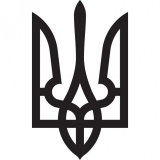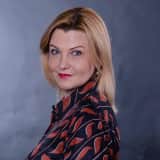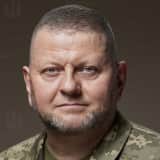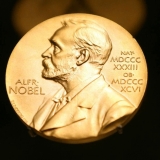Public Appeal to the International Committee of the Red Cross (ICRC)
24 March 2022
Dear Peter Maurer,
It's the 29th day of war. Thousands of civilians are killed by the Russian army. Dozens of cities are experiencing humanitarian catastrophes.
You mentioned yourself that the humanitarian operation in Ukraine is the biggest one ICRC has ever experienced.
Compassionate people from all over the world keep donating money to support Ukrainians with evacuation and humanitarian needs. ICRC itself has the only possible mandate to help Ukrainians with evacuation. In particular, according to international humanitarian law the ICRC can not only lend its good offices in order to facilitate the institution and recognition of hospital and safety zones and localities (Article 14 of Geneva Convention IV) but also take any humanitarian initiative that it deems necessary. In this context, we URGE YOU TO INTENSIFY YOUR ACTIVITIES in the following areas:
- Full-scale support of green corridors from the occupied and combat zones, territories with humanitarian catastrophes;
- Assistance in logistics of humanitarian aid;
- Stopping the forced deportation of people from Mariupol, Donetsk and other areas that temporarily are or might be under the Russian control to Russia without their freely given consent and documents, especially given the fact that ICRC has a mission present in Donetsk;
- Prevention of kidnapping of children from orphanages and their forced deportation to Russia;
- Collecting the bodies of Russian soldiers and sending them back to Russia;
- Closer cooperation with Ukrainian volunteers and greater transparency in operational activities of ICRC, including reports on the number of staff engaged, locations, funding, etc.
We appreciate all the efforts ICRC has made to date, however, we are waiting for official comments from your side on why your mission left Mariupol as attacks intensified. The whole city of Mariupol (with 450,000 people) is now taken hostage by the Russian Army, the city has been reduced to ashes, people keep dying or being deported to Russia without documents. The situation in Mariupol is the aggregate of numerous war crimes and crimes against humanity. It may also constitute an active act of genocide against Ukrainians as a national group. Could you please let us know what specific actions has ICRC done to prevent or help with this?
The scale of the problem requires more proactive decisions and urgent steps. We witness that the current evacuation and support initiatives in Mariupol are organised mostly by the Ukrainian volunteers and state institutions. Please see relevant comments below:
"Today, humanitarian convoys heading to the besieged towns and villages are accompanied by representatives of the State Emergency Service of Ukraine and drivers. And in accordance with international standards of work in combat zones, there must be ICRC personnel, their vehicles, their humanitarian aid, their flags and symbols that show that this is a humanitarian mission. But we hardly see it in the humanitarian corridors of Ukraine.There is no ICRC whatsoever in Mariupol corridors", Tetіana Lomakina, advisor-representative of the President of Ukraine, coordinates the issues of humanitarian corridors.
"The Kyiv Region Military Administration sent ICRC a letter in early March, asking for assistance in different ways. No replies. Also, we tried to make a personal contact, but received no more than "you should understand". All the evacuation which is done right now in the Kyiv region is handled mostly by the Ukrainian side (Ukrainian Red Cross, Ukrainian state officials and volunteers), we don’t see much of ICRC. We are also upset by the weakness of ICRC statements. Last week in Kyiv, ICRC president used the phrase ‘conflict in Ukraine’. Not a war. Not a Russian invasion. Just a "conflict"", Vitalii Vlasiuk, member of the Kyiv Region Military Administration.
"Our team worked very actively in the Donetsk region in 2014-15, so we know how important a role is played by international organisations with a neutral status. They are the ones who can help where neither state structures nor Ukrainian public organisations can do it. For example, this was the case in occupied Donetsk in 2014-15. We were hoping that now the UN and ICRC agencies would join the evacuation of Mariupol residents and the provision of humanitarian aid. But this did not happen. People helped each other, shared food, water, and housing. Sometimes food was distributed by entrepreneurs who had some supplies. For example, we could have obtained bread and briquettes of frozen squid in the queue. In conditions of absolute isolation, the only sources of information were isolated phone calls, rumors and Russian radio, which for some reason worked in Mariupol. Telephone communication worked more or less only until March 5. Then it was necessary to go to the only place in Mariupol where there was a connection. Therefore, most of us heard about the "green" corridor before March 5, but after an unsuccessful attempt at the corridor on March 5, there was no more information. Therefore, part of our team, which was in a safe area, sent those who were in Mariupol, SMS with a message about the situation, the routes for self-evacuation, etc. Some people have already left for Zaporizhzhya, some are still in occupied Berdyansk, which has become transit. And some still have not received those text messages. We have never met the ICRC along the way", Ulyana Tokareva, Council of Women of the Donetsk Region.
We urge you to focus all your efforts on helping Ukraine, especially Mariupol which is currently the worst place on Earth. Every bit of opportunity must be used without any minute of delay.
Signatories:
- Alina Sviderska, President of the Cambridge Society of Ukraine;
- Mykola Gnatovskyy, Professor of International Law, Taras Shevchenko University of Kyiv, former member of the Editorial Board of the International Review of the Red Cross, President of the European Committee for the Prevention of Torture (2015–2021);
- Yuliya Tychkivska, CEO of Aspen Institute Kyiv;
- Denis Poltavets, Program Director of the Aspen Institute Kyiv;
- Ganna Gorbenko, Head of Ukrainian Compliance Association;
- Valeriya Melnichuk, Vice-President, Highgate Advisory;
- Ulyana Tokareva, Council of Women of the Donetsk Region;
- Kostiantyn Lisnychyi, Chairman of the Professional Government Association of Ukraine (PGA);
- Kateryna Busol, Vice-President of the Cambridge Society of Ukraine;
- Andriy Tymoshenko, President of the Oxford University Ukrainian Society;
- Vadim Geshel, Co-founder of Leleka Foundation;
- Oksana Lemishka, Former Lead at the Centre for Sustainable Peace and Democratic Development (SeeD), freelance researcher into media and culture;
- Oleksandra Matviichuk, Head of the Center for Civil Liberties;
- Bohdan Tokarskyi, Senior Research Assistant, University of Potsdam;
- Olena Shevchenko, Chairperson Insight public organisation;
- Anastasia Zolotar, Director, Fonoa Technologies;
- Anastasiia Gerasymenko, Women's March public initiative;
- Yevheniia Lutsenko, Centre for Social and Gender Researth "New Life";
- Andriy Kozlov, former Commissioner at High Qualification Commission of Judges of Ukraine (2016-2019);
- Olga Balytska, Office for City Development (founder and CEO), Spunbond (founder);
- Maksym Eristavi, Ukrainian journalist, senior fellow at Center for European Policy Analysis;
- Iryna Ozymok, Co-founder of the Professional Government Association of Ukraine (PGA);
- Anna Arima, CEO Deneeze Agency, co-founder Ukrainian Support Network;
- Yuri Kubrushko, Coordinator, Saving Lives in Ukraine Volunteer Initiative;
- Mariia Parubets, Hamburg University;
- Maria Tsarova, international lawyer;
- Yvetta Delikatna, Ecomm communication consultancy partner;
- Azad Safarov, journalist;
- Tamara Kortukova, Associate Professor of Kyiv Trade and Economic University;
- Yulia Krasilnykova, CF Vostok SOS;
- Maryna Dei, associate professor National Aviation University;
- Olha Boichuk, teacher;
- Oksana Matiiash, CEO, Teach For Ukraine;
- Tetiana Pechonchyk, head of the Human Rights Center ZMINA;
- Oksana Cherednyk, citizen of Ukraine;
- Nataliia Tuzheliak, Advocate admitted in Ukraine, Solicitor of England and Wales, Associate of White & Case LLP;
- Katerina Sviderskaya, student at SciencesPo Paris;
- Ivanna Ostapchuk, student of Sorbonne University and Kyiv National University;
- Marianna Babich, PHDstudent at Sorbonne University;
- Anna Maiorova, Student at HEC Paris;
- Ilona Stankevych, Executive producer, Senior lecturer at KMA;
- Kateryna Bondar, World Federation of Ukrainian Women’s Organisations;
- Natalya Olbert-Sinko, Managing Partner, One Health Consultancy;
- Sandra MacKenzie, former Kyiv Post staff writer;
- Oleksiy Sigov, Partner Manager at Infopulse Ukraine;
- Maria Montague, Deputy Director, Ukrainian Institute London; Researcher, Arena Programme;
- Jaroslava Barbieri, doctoral researcher, University of Birmingham;
- Marta Sakhnevych, interpreter;






